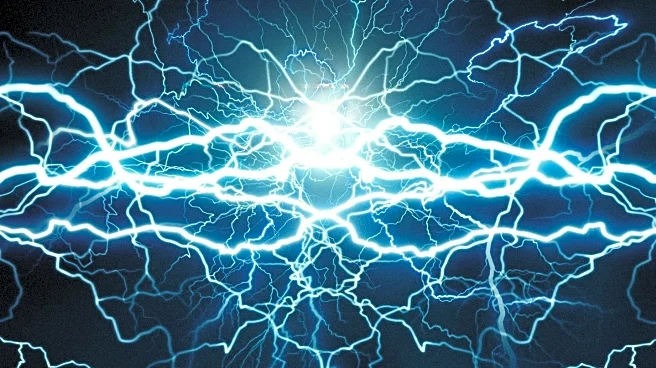What's Happening?
As electricity prices continue to rise, consumers are seeking effective ways to manage their energy costs. One simple yet impactful method is turning off lights when leaving a room, which can significantly
reduce electricity bills. This practice not only saves money but also contributes to environmental conservation by reducing carbon emissions. The savings depend on the type of light bulb used and the local electricity rate, but even small changes in routine can lead to substantial savings over time.
Why It's Important?
Reducing energy consumption is crucial for both financial and environmental reasons. By turning off lights and unplugging electronics when not in use, individuals can lower their carbon footprint, contributing to the fight against climate change. Financially, this practice helps consumers manage rising electricity costs, providing relief to households facing budget constraints. Additionally, extending the life of light bulbs through reduced usage further contributes to cost savings.
What's Next?
Consumers are encouraged to adopt energy-saving habits, such as using smart light bulbs that automate lighting schedules. As awareness grows, more households may invest in energy-efficient technologies, further reducing their environmental impact and utility expenses. Energy providers might also offer incentives for reduced consumption during peak hours, encouraging more strategic energy use.
Beyond the Headlines
The shift towards energy conservation reflects broader societal trends towards sustainability and responsible resource management. As more individuals embrace these practices, there could be a cultural shift towards valuing environmental stewardship, influencing policy and consumer behavior on a larger scale.









